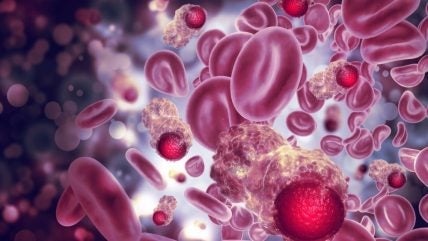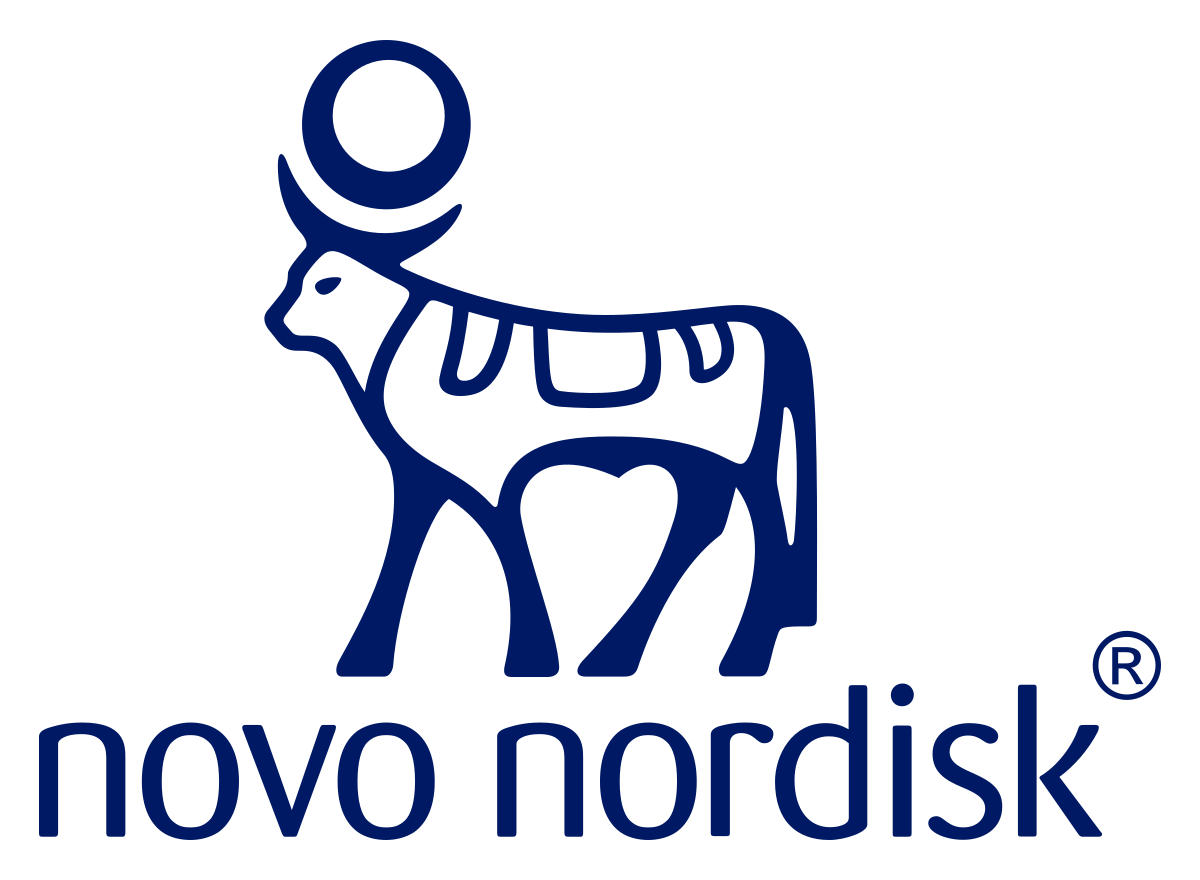预约演示
更新于:2025-11-08
NN-8828
更新于:2025-11-08
概要
基本信息
在研机构 |
非在研机构 |
最高研发阶段临床1期 |
首次获批日期- |
最高研发阶段(中国)- |
特殊审评- |
登录后查看时间轴
结构/序列
Sequence Code 121534L

Sequence Code 121539H

关联
6
项与 NN-8828 相关的临床试验NCT02443155
A Randomised, Double-blind, Double-dummy, Placebo-controlled, Parallel-group Multi-centre Clinical Proof-of-principle Trial in Adult Subjects With Newly Diagnosed Type 1 Diabetes Mellitus Investigating the Effect of NNC0114-0006 and Liraglutide on Preservation of Beta-cell Function
This trial is conducted globally. The aim of this trial is to assess the clinical proof-of-principle of NNC0114-0006 and liraglutide on preservation of beta-cell function in adult subjects with newly diagnosed type 1 diabetes mellitus.
开始日期2015-11-10 |
申办/合作机构 |
NCT01751152
A Randomised, Double-blind, Placebo-controlled, Parallel-group Trial to Assess Clinical Efficacy and Safety of NNC0114-0006 in Subjects With Active Crohn's Disease
This trial is conducted in Europe and the United States of America (USA). The aim of the trial is to assess clinical efficacy and safety of NNC0114-0006 in subjects with active Crohn's disease.
开始日期2013-02-01 |
申办/合作机构 |
NCT01647451
A Randomised, Double-blind, Placebo-controlled, Parallel-group Trial to Assess Clinical Efficacy of NNC0114-0006 in Subjects With Active Rheumatoid Arthritis
This trial is conducted in Europe. The aim of the trial is to evaluate the change in disease activity following intravenous (i.v.) administration of two doses of NNC0114-0006 compared to placebo in subjects with active rheumatoid arthritis (RA) on background methotrexate (MTX) therapy.
开始日期2012-09-01 |
申办/合作机构 |
100 项与 NN-8828 相关的临床结果
登录后查看更多信息
100 项与 NN-8828 相关的转化医学
登录后查看更多信息
100 项与 NN-8828 相关的专利(医药)
登录后查看更多信息
9
项与 NN-8828 相关的新闻(医药)2025-06-03
IL-21是一种由 T 细胞和自然杀伤 T 细胞(NKT 细胞)等分泌的细胞因子,在免疫调节中发挥关键作用,参与多种自身免疫性疾病。IL-21结构一、分子结构基本组成氨基酸序列人类 IL-21 由 133 个氨基酸组成,成熟蛋白含 4 个保守的 α 螺旋结构域(A、B、C、D),属于γ 链细胞因子家族(成员还包括 IL-2、IL-4、IL-7、IL-9、IL-15等),共享共同的 γ 链(γc,CD132)作为受体亚基。空间结构通过 α 螺旋形成四聚体结构,与受体结合后触发信号传导。受体复合物JAK 激酶IL-21R 与 γc 结合后,激活JAK1(与 IL-21R 胞内区结合)和JAK3(与 γc 胞内区结合)。STAT 转录因子主要激活STAT3,同时可激活 STAT1 和 STAT5,调控下游基因表达(如 Bcl-6、Blimp-1、IRF4 等)。IL-21 受体(IL-21R)为 Ⅰ 型跨膜蛋白,胞外区含免疫球蛋白样结构域,与 γc 亚基结合形成功能性受体复合物。10.12688/f1000research.7634.1IL-21来源一、核心生产者:CD4⁺ T 细胞亚群1. 滤泡辅助 T 细胞(Tfh 细胞)主要存在于淋巴滤泡生发中心,是 IL-21 的主要来源之一,负责辅助 B 细胞分化、抗体类别转换和记忆 B 细胞生成。在自身免疫疾病(如系统性红斑狼疮 SLE、干燥综合征)中,Tfh 细胞过度活化,分泌大量 IL-21,驱动 B 细胞产生自身抗体。转录因子Bcl-6是 Tfh 细胞分化的核心调控因子,直接促进 IL-21 基因转录。共刺激分子ICOS(诱导性共刺激分子)和CD40L增强 Tfh 细胞的 IL-21 分泌。2. 外周辅助 T 细胞(Tph 细胞)为非淋巴组织中的 Tfh 样细胞,分布于炎症部位(如类风湿关节炎 RA 的滑膜、银屑病皮损),在慢性炎症中持续分泌 IL-21。在 RA 中,滑膜 Tph 细胞通过 IL-21 诱导 B 细胞分化为浆细胞,并促进 CD8⁺ T 细胞向组织驻留记忆细胞(T RM)分化,加剧关节炎症。特征表型:高表达PD-1、CXCR5⁻(区别于 Tfh 细胞的 CXCR5⁺),依赖BATF-IRF4转录复合物调控 IL-21 表达。3. Th17 细胞主要分泌 IL-17,但在某些条件下(如肠道炎症、多发性硬化)可共分泌 IL-21,增强 Th17 细胞的致病性。在 ** 炎症性肠病(IBD)** 中,IL-21 与 IL-17 协同作用,促进肠道上皮细胞分泌趋化因子,招募中性粒细胞和单核细胞。转录因子RORγt驱动 Th17 分化,IL-23可诱导 Th17 细胞上调 IL-21 表达。二、其他 T 细胞相关生产者1. CD8⁺ T 细胞在慢性病毒感染(如 LCMV 克隆 13 株感染)或肿瘤微环境中,部分 CD8⁺ T 细胞(如耗竭前体祖细胞)可分泌 IL-21,反馈调节自身功能。作用:促进 CD8⁺ T 细胞自身存活或激活邻近免疫细胞(如 NK 细胞)。2. 自然杀伤 T 细胞(NKT 细胞)识别脂质抗原,在抗病毒(如流感病毒)和抗肿瘤免疫中分泌 IL-21,激活 NK 细胞和 CD8⁺ T 细胞。在银屑病中,皮肤 NKT 细胞分泌 IL-21,诱导角质形成细胞增殖和炎症因子释放。3. γδ T 细胞在肠道或皮肤中,γδ T 细胞可分泌 IL-21,参与局部免疫防御或炎症反应(如感染诱导的肠道炎症)。三、非 T 细胞来源1.ILC3 亚群在肠道黏膜中,ILC3 分泌 IL-21,协同 Th17 细胞维持肠道屏障功能,调控共生菌群平衡。缺陷时可能导致肠道炎症易感性增加(如 IL-21R 突变患者的早发性炎症性肠病)。2. 活化的 B 细胞在自身免疫病(如 SLE)中,活化的 B 细胞可短暂表达 IL-21,形成自分泌环路,促进自身抗体产生。3. 肿瘤细胞如霍奇金淋巴瘤细胞分泌 IL-21,招募 Tfh 细胞或抑制免疫监视,营造免疫抑制微环境。IL-21与自身免疫性疾病1. 系统性红斑狼疮(SLE)B 细胞过度活化Tfh 细胞分泌 IL-21,协同 CD40L 驱动 B 细胞增殖、类别转换和自身抗体(如抗 dsDNA 抗体)产生,形成免疫复合物沉积于肾脏等组织。CD8⁺ T 细胞异常IL-21 诱导 CD8⁺ T RM 细胞浸润肾脏,通过穿孔素 / 颗粒酶途径损伤肾小球。细胞因子网络失衡IL-21 与 IFNγ、IL-6 协同,放大 I 型干扰素信号,加剧炎症。临床关联患者血清 IL-21 水平与疾病活动度(如 SLEDAI 评分)正相关,且与抗核抗体滴度呈线性关联。携带 IL-21/IL-21R 基因多态性的人群易感性增加(如 rs6822844 位点)。治疗探索抗 IL-21 单抗(NNC0114-0006)临床试验显示可降低自身抗体水平,但对肾脏损伤的改善需进一步验证。JAK 抑制剂(如托法替尼)抑制 JAK1/3-STAT3 通路,减少 B 细胞活化和 T RM 细胞浸润,已用于 SLE 相关关节炎治疗。2. 类风湿关节炎(RA)Tph 细胞(PD-1⁺CXCR5⁻表型)在滑膜中分泌 IL-21,诱导 CD8⁺ T 细胞表达 CD69⁺CD103⁺(T RM 特征),持续释放细胞因子损伤关节。成纤维样滑膜细胞(FLS)通过 IL-21R 接收信号,增殖并分泌基质金属蛋白酶(MMPs),破坏软骨和骨组织。IL-21 协同 RANKL 诱导破骨细胞分化,加剧骨质疏松和关节畸形。临床关联滑膜液中 IL-21 水平与关节侵蚀程度正相关,约 80% 的 RA 患者滑膜 CD8⁺ T 细胞表达 IL-21R。抗 CCP 抗体阳性患者中,IL-21-driven 浆细胞分化更为显著。治疗进展IL-21R-Fc 融合蛋白在胶原诱导的关节炎小鼠模型中可减轻关节肿胀,减少 IFNγ⁺CD8⁺ T 细胞浸润。通过阻断 ICOS-ICOSL 共刺激通路,抑制 Tph 细胞的 IL-21 分泌,处于临床前研究阶段。3. 1 型糖尿病(T1D)CD4⁺ T 细胞(Tfh/Tph 表型)分泌 IL-21,激活 CD8⁺ T 细胞向胰岛浸润,诱导 β 细胞凋亡(通过 Fas-FasL 途径)。IL-21R 缺陷小鼠(如 NOD 模型)不发生糖尿病,CD8⁺ T 细胞浸润显著减少。IL-21 促进 CD8⁺ T RM 细胞在胰腺定植,形成持续免疫攻击。临床关联患者血液中 Tfh 细胞频率与胰岛自身抗体(如抗 GAD 抗体)水平正相关。抗 IL-21 治疗可减少 NOD 小鼠胰岛 CD69⁺CD8⁺ T 细胞,恢复 β 细胞功能。治疗探索IL-21 中和抗体联合 GLP-1 受体激动剂(如利拉鲁肽)在 NOD 小鼠中可逆转高血糖,促进 β 细胞再生。4. 银屑病表皮过度增殖真皮 CD4⁺ T 细胞(Th1/Th17 混合表型)分泌 IL-21,直接作用于角质形成细胞,诱导 CXCL8、IL-6 表达,促进细胞增殖和表皮增厚。炎症环路放大IL-21 与 IL-22 协同,激活 γδ T 细胞和中性粒细胞,形成 “细胞因子风暴”。临床关联皮损中 IL-21 水平与银屑病面积和严重程度指数(PASI)正相关,JAK 抑制剂托法替尼对斑块状银屑病疗效显著。治疗进展局部 IL-21阻断,在银屑病小鼠模型中,抗 IL-21 抗体可减少表皮厚度和炎症细胞浸润。5. 干燥综合征(Sjögren’s Syndrome)唾液腺中 Tfh 细胞(CXCR5⁺PD-1⁺)分泌 IL-21,驱动 B 细胞分化为浆细胞,产生抗 Ro/La 抗体,浸润腺泡细胞。CD8⁺ T RM 细胞(CD103⁺)通过穿孔素途径损伤上皮细胞,导致泪腺和唾液腺功能障碍。临床关联患者血清 IL-21 水平与唾液腺淋巴细胞浸润程度及自身抗体滴度相关。治疗探索B 细胞清除疗法联合 IL-21 抑制,理论上可同时减少抗体产生和 Tfh 细胞辅助功能。6. 其他自身免疫性疾病多发性硬化(MS)IL-21 促进 Th17 细胞分化,加剧中枢神经系统脱髓鞘,动物模型中抗 IL-21 治疗可减轻 EAE(实验性自身免疫性脑脊髓炎)症状。炎症性肠病(IBD)IL-21 增强 Th1 细胞介导的肠道炎症,IL-21R 缺陷小鼠对 DSS 诱导的结肠炎抵抗。部分IL-21药物Avizakimab(Bos161721)研发公司:Boston Pharmaceuticals。NN-8828研发公司:诺和诺德。2024年授权给Almirall 。Atr-107研发公司:Pfizer。作用机制:针对IL-21R的人单克隆IgG1抗体,恒定区包含突变,可作用于IL-21R,阻断IL-21与IL-21R的结合。Denenicokin(BMS-982470)研发公司:百时美施贵宝。作用机制:IL-21抗体,可特异性地结合IL-21,阻断其生物学活性。参考资料Almirall licenses an anti-IL-21 monoclonal antibody from Novo Nordisk to develop it as a first-in-class agent in dermatology ,https://www.almirall.com/documents/portlet_file_entry/4257831/EN+-+2024_Novo+Nordisk_NN-8828.pdf/72f26e60-11de-bcb6-e9f9-afd3d1ae5613Mesas-Fernández, A., Bodner, E., Hilke, F.J., Meier, K., Ghoreschi, K. and Solimani, F. (2023), Interleukin-21 in autoimmune and inflammatory skin diseases. Eur. J. Immunol., 53: 2250075. New developments implicating IL-21 in autoimmune disease,J Autoimmun. 2021 August ; 122: 102689. doi:10.1016/j.jaut.2021.102689IL-17 and IL-21: Their Immunobiology and Therapeutic Potentials,Immune Netw. 2024 Feb;24(1):e2 https://doi.org/10.4110/in.2024.24.e2 IL-21 Signaling in Immunity,F1000Research 2016, 5(F1000 Faculty Rev):224 Last updated: 26 FEB 2016,doi 10.12688/f1000research.7634.1
细胞疗法临床研究
2024-02-24
点击蓝字关注我们元宵佳节 团圆喜乐本周,热点不少。首先是审评审批方面,有不少药申报上市和获批。很值得关注的两条消息,一条是武田GLP-2类似物替度格鲁肽在中国获批上市,成为中国首个治疗短肠综合征的人GLP-2类似物。另一条就是恒瑞医药靶向CD79b的ADC药物获FDA快速通道资格;其次是研发方面,不少药取得研发新进展,其中,信达生物抗IGF-1R抗体Ⅲ期达主要终点,这个最引人注目;最后就是交易及投融资方面,诺和诺德IL-21单抗授权Almirall。 本期盘点包括审评审批、研发、交易及投融资三大板块,统计时间为2.18-2.23,包含32条信息。 审评审批NMPA上市批准1、2月18日,NMPA官网显示,罗氏(Roche)的恩曲替尼胶囊新适应症获批,用于治疗1月龄以上NTRK融合儿童实体瘤患者。恩曲替尼是一款具有中枢神经系统(CNS)活性TRK/ROS1酪氨酸激酶抑制剂,此前已在中国获批,用于治疗12岁及以上NTRK融合阳性实体瘤,以及ROS1阳性的非小细胞肺癌患者。2、2月19日,NMPA官网显示,诺贝仁制药(Nobelpharma)的5.1类新药醋酸锌片获批上市,适应症为肝豆状核变性。醋酸锌片(zincacetate、商品名:Nobelzin)是一款铜吸收抑制剂,已经在日本获批上市,用于治疗肝豆状核变性、低锌血症。3、2月23日,NMPA官网显示,武田(Takeda)的注射用替度格鲁肽(商品名:瑞唯抒)获批上市,用于治疗短肠综合征(SBS)成人和1岁及以上儿童患者。患者应仅在经过一段时间肠道适应后,在病情稳定且依赖肠外营养支持的情况下使用本品治疗。替度格鲁肽成为中国首个治疗短肠综合征的人胰高血糖素样肽2(GLP-2)类似物。申请4、2月18日,CDE官网显示,恒瑞医药的1类新药夫那奇珠单抗注射液(SHR-1314)新适应症申报上市,用于常规治疗疗效欠佳的活动性强直性脊柱炎成人患者。夫那奇珠单抗是其自主研发的一种靶向人IL-17A的重组人源化单克隆抗体,拟用于治疗与IL-17通路相关的自身免疫疾病。5、2月18日,CDE官网显示,华润生物的注射用重组人组织型纤溶酶原激酶衍生物(商品名:瑞通立)新适应症申报上市,用于急性缺血性卒中患者的溶栓治疗。注射用重组人组织型纤溶酶原激酶衍生物属于第三代溶栓药物,仅包含天然组织型纤溶酶原激活剂(tPA)对纤维蛋白的高度特异性和酶活性区域。此前,已在中国获批,用于急性心肌梗死的溶栓治疗。临床批准 6、2月18日,CDE官网显示,加科思的SHP2抑制剂JAB-3312与KRASG12C抑制剂戈来雷塞联合用药获批注册性Ⅲ期临床试验。这是一项随机阳性药对照的3期试验,旨在评估JAB-3312与戈来雷塞联合用于KRASG12C突变的一线非小细胞肺癌(NSCLC)患者的疗效及安全性,试验的对照组是目前一线非小细胞肺癌的标准疗法,即PD-1抗体和化疗联合治疗。7、2月18日,CDE官网显示,凡恩世制药(PhanesTherapeutics)的1类新药PT886获批临床,拟用于治疗晚期实体瘤(包括胃癌,胃食管交界处癌和胰腺癌)。PT886是凡恩世生物开发的一款具有天然IgG结构的双特异性抗体,靶向Claudin18.2和CD47。8、2月19日,CDE官网显示,杭州格博生物的GLB-001胶囊获批临床,拟用于治疗髓系恶性肿瘤。GLB-001是一款具有“First-in-class”潜力、强效和高选择性的CK1α口服分子胶蛋白降解剂。2023年,GLB-001已获FDA批准进入临床研究,用于复发/难治性急性髓系白血病(R/RAML)或复发/难治性较高危骨髓异常增生综合征(R/RHR-MDS)的治疗。9、2月19日,CDE官网显示,阿斯利康(AstraZeneca)的1类新药ALXN1850注射液获批临床,拟开发作为酶替代疗法用于治疗低磷酸酯酶症(HPP)。ALXN1850是正在研发中的新一代组织非特异性碱性磷酸酶酶替代疗法(ERT),目前正在国际上开展多项治疗HPP的Ⅲ期临床研究。10、2月20日,CDE官网显示,永泰生物的aT19注射液获批临床,拟用于25岁(含)以下复发/难治B细胞急性淋巴细胞白血病(B-ALL),在靶向CD19 CAR-T细胞治疗后临床获益的患者,以增强治疗效应、减少复发。aT19注射液是一种1类治疗用生物制品,主要功能成分为CD19抗原呈递T细胞。11、2月22日,CDE官网显示,默沙东(MSD)的MK-7240获批临床,拟用于治疗中度至重度活动性溃疡性结肠炎。这是一种针对肿瘤坏死因子(TNF)-样配体1A(TL1A)的人源化单克隆抗体(mAb)。2023年6月,默沙东以总额达108亿美元的款项完成对Prometheus Biosciences的收购,从而获得这款免疫领域的产品。12、2月22日,CDE官网显示,普方生物(ProfoundBio)1类新药注射用PRO1107获批临床,拟用于治疗实体瘤患者。PRO1107是一款以蛋白酪氨酸激酶7(PTK7)为靶点的抗体偶联药物(ADC)。2024年2月16日,普方生物刚宣布完成1.12亿美元超额B轮融资,用于加速其包括PRO1107的ADC管线的开发。申请13、2月22日,CDE官网显示,启德医药的GQ1010注射液申报临床。这是一款靶向TROP2的下一代ADC,具有同类最佳潜力。GQ1010是启德医药自主开发的一款靶向TROP2的ADC,目前,同类产品中,全球仅有吉利德的Trodvy上市。优先审评14、2月18日,CDE官网显示,曙方医药的Vamorolone口服混悬液拟纳入优先审评,用于治疗4岁及以上杜氏肌营养不良(DMD)患者。Vamorolone是一款原创新药,其作用机制与糖皮质激素结合的受体相同但改变了其下游活性。该药是曙方医药花1.24亿美元自Santhera引进的一款罕见病新药,已在美国和欧盟获批治疗DMD。15、2月21日,CDE官网显示,默沙东的Belzutifan片拟纳入优先审评,用于vonHippel-Lindau(VHL)病相关肾细胞癌(RCC)、中枢神经系统(CNS)血管母细胞瘤或胰腺神经内分泌肿瘤(pNET)的治疗。Belzutifan是一款小分子缺氧诱导因子2α(HIF-2α)抑制剂,可以减少与细胞增殖、血管生成和肿瘤生长相关的HIF-2α靶基因的转录和表达。FDA上市批准16、2月20日,FDA官网显示,强生的特立妥单抗(teclistamab、商品名:Tecvayli)新适应症获批,以降低注射频率至每两周1次(Q2W)1.5mg/kg治疗复发或难治性多发性骨髓瘤(R/RMM),这些患者至少已实现6个月的达到完全缓解(CR)或更好缓解。teclistamab是一款使用GenmabDuoBody技术开发的能同时靶向T细胞CD3和MM细胞BCMA的IgG4双抗。申请17、2月19日,FDA官网显示,阿斯利康与第一三共的Datopotamabderuxtecan(Dato-DXd)递交生物制品许可申请(BLA),用于既往接受过全身治疗的局部晚期或转移性非鳞状非小细胞肺癌(NSCLC)成人患者的治疗。如果顺利获批,Dato-DXd将成为全球首个治疗肺癌的TROPADC。PDUFA日期为2024年第四季度。18、2月23日,FDA官网显示,再生元/赛诺菲的度普利尤单抗(Dupixent)第6个潜在新适应症申报上市并获优先审评,作为某些未控制的慢性阻塞性肺病(COPD)成人患者的附加维持治疗。PDUFA日期为2024年6月27日。如果获得批准,度普利尤单抗将成为COPD的唯一生物疗法,也是十多年来第一种针对该疾病的新治疗方法。临床批准19、2月19日,FDA官网显示,凯思凯迪的1类新药CS060304获批临床。CS060304是一种靶向甲状腺受体β(TRβ)的小分子激动剂,旨在用于治疗非酒精性脂肪性肝炎(NASH)患者。NASH是非酒精性脂肪性肝病(NAFLD)的晚期形式,它是导致肝脏相关死亡的主要原因。20、2月22日,FDA官网显示,免疫方舟的IMB071703注射液获批临床,拟用于治疗晚期恶性实体瘤患者。IMB071703作为免疫方舟利用自有XFab平台开发的双功能性融合蛋白,可同时靶向CD40和4-1BB信号通路,其被开发用来激活先天免疫和适应性免疫的有效反应,以及削弱肿瘤防御。21、2月23日,FDA官网显示,易慕峰的IMC001获批临床,拟用于治疗EpCAM表达阳性的晚期消化系统肿瘤,包括但不限于晚期胃癌(GC)/食管胃结合部腺癌(GEJ)。IMC001是靶向EpCAM的自体CAR-T细胞注射液。孤儿药资格22、2月19日,FDA官网显示,迈威生物的9MW3011获批孤儿药资格,用于治疗真性红细胞增多症。该产品已在中美开展临床试验,并于2023年9月获得FDA快速通道资格。9MW3011(MWTX-003/DISC-3405)是迈威生物位于美国的圣地亚哥创新研发中心自主研发的抗TMPRSS6单克隆抗体。23、2月22日,FDA官网显示,以明生物的IO-202获批孤儿药资格,用于治疗慢性粒单核细胞白血病(CMML)。FDA此前已经授予IO-202治疗复发或难治性CMML的快速通道资格。IO-202是一款潜在“first-in-class”拮抗剂抗体,可特异性和高亲和力结合白细胞免疫球蛋白样受体B4(LILRB4),在血液肿瘤、自身免疫和炎症性疾病中都具有广泛治疗潜力。快速通道资格24、2月22日,FDA官网显示,恒瑞医药的注射用SHR-A1912被授予快速通道资格,用于治疗既往接受过至少2线治疗的复发/难治性弥漫大B细胞淋巴瘤(R/R DLBCL)。SHR-A1912是恒瑞医药开发的一款靶向CD79b的抗体药物偶联物(ADC)。目前,国内外仅有一款同类产品维泊妥珠单抗(Polivy)于2019年在美国获批上市,并于2023年在中国获批上市。研发临床状态25、2月20日,以明生物(Immune-OncTherapeutics)宣布,与罗氏(Roche)合作开展一项Ⅰb/Ⅱ期临床试验,评估其靶向LILRB2(ILT4)的潜在“first-in-class"抗体IO-108联合罗氏的抗PD-L1单抗阿替利珠单抗和抗VEGF单克隆抗体贝伐珠单抗,用于局部晚期或转移性和/或不可切除肝细胞癌(HCC)患者的一线治疗。26、2月21日,药物临床试验登记与信息公示平台显示,赛诺菲(Sanofi)登记了一项国际多中心(含中国)Ⅱ期开放性、长期研究,以在中度至重度特应性皮炎成人受试者中评价amlitelimab皮下给药的安全性和疗效。amlitelimab是一款潜在“first-in-class”OX40信号通路阻断剂。27、2月21日,药物临床试验登记与信息公示平台显示,安进登记了一项在中国肥胖或超重受试者中评价AMG133皮下给药的药代动力学、安全性和耐受性的开放性、随机化、平行分组、单次给药I期研究。AMG133是一款first-in-class的双特异性抗体多肽偶联物,针对肥胖适应症,只需每4周皮下注射1次。临床数据28、2月19日,智翔金泰宣布,其自主研发的抗IL-17A单抗赛立奇单抗(GR1501)注射液针对中、重度斑块状银屑病的Ⅲ期临床研究取得积极结果,结果显示,赛立奇单抗对中国中、重度斑块状银屑病患者疗效显著,且具有良好的安全性和耐受性。29、2月20日,信达生物宣布,其自主研发的重组抗胰岛素样生长因子1受体(IGF-1R)抗体注射液(IBI311)在中国甲状腺眼病(TED)受试者中开展的Ⅲ期注册临床研究达成主要终点。信达生物计划向CDE递交IBI311治疗TED的新药上市申请。交易及投融资30、2月19日,Almirall宣布,与诺和诺德就NN-8828的权利达成独家许可协议。根据该协议,Almirall获得了在某些领域开发和商业化这种单克隆抗体的全球权利,包括免疫炎症性皮肤病。NN-8828是诺和诺德针对细胞因子IL-21开发的皮肤病领域first-in-class高亲和力单克隆抗体,目前已进入非皮肤病适应症的Ⅱ期阶段。31、2月19日,百奥赛图宣布,与吉利德科学达成一项抗体评估和选择协议。该协议授权吉利德使用百奥赛图针对广泛的药物靶点建立的全人抗体库进行相关靶点的抗体评估。在三年提名期内,吉利德将提名他们感兴趣的多个靶点并评估相应抗体,并有权选择获得特定抗体用于全球范围内治疗性产品的开发。32、2月20日,核舟医药宣布,与ARTBIO公司达成独家战略合作。核舟医药是一家专注于新型靶向放射性配体药物发现、开发和产业化的生物科技公司。ARTBIO是一家临床阶段的放射性药物公司,致力于研发新型α核素放射性配体疗法。【智药研习社近期课程预告】来源:CPHI制药在线声明:本文仅代表作者观点,并不代表制药在线立场。本网站内容仅出于传递更多信息之目的。如需转载,请务必注明文章来源和作者。投稿邮箱:Kelly.Xiao@imsinoexpo.com▼更多制药资讯,请关注CPHI制药在线▼点击阅读原文,进入智药研习社~
上市批准临床3期抗体药物偶联物
2024-02-22
IO-202 is a monoclonal antibody that targets leukocyte immunoglobulin-like receptor subfamily B member 4 (LILRB4), which can suppress immunity in solid tumours. Image Credit: crystal light / Shutterstock.
The US Food and Drug Administration (FDA) has granted an orphan drug designation to Immune-Onc Therapeutics’ IO-202 for the treatment of a rare blood cancer – chronic myelomonocytic leukaemia (CMML).
IO-202 had previously received a
fast track designation from the US FDA
as a treatment of relapsed or refractory (r/r) CMML in 2023. The therapy was also granted both orphan drug and fast track designations as a treatment for acute myeloid leukaemia (AML) by the FDA in 2020 and 2022, respectively.
The
orphan drug designations
allow for an extended market exclusivity of seven years in the US and developmental incentives such as an exemption of FDA application fees and tax credits for qualified clinical testing. The fast track designations enable earlier interactions with the FDA for the pursuit of accelerated approval. The status also opens chances of rolling reviews.
IO-202 is a monoclonal antibody that targets leukocyte immunoglobulin-like receptor subfamily B member 4 (LILRB4), which can suppress immunity in solid tumours. It also mediates the T-cell suppression and infiltration of AML cells.
It is being investigated as a monotherapy and in combination with chemotherapy, azacytidine, along with targeted therapy
AbbVie
/Genentech’s Venclexta (venetoclax), in a Phase I trial (NCT04372433). The study is expected to enrol approximately 106 patients with either r/r AML or r/r CMML. It is expected to conclude in 2026, as per ClinicalTrial.gov.
See Also:
Harmony wins orphan drug tag for pitolisant to treat Prader-Willi syndrome
United Therapeutics sues FDA over handling of Liquidia’s NDA
A
second Phase I trial
(NCT05309187) investigating IO-202 in combination with a PD-1 immune checkpoint inhibitor, MSD’s Keytruda (pembrolizumab) is also currently underway. The study enrolled approximately 200 patients with advanced solid tumours and is expected to be completed in April.
Monoclonal antibodies have been identified as a
key innovation area for cancer therapy
by GlobalData, with multiple companies investing to develop antibody therapies for various indications. In December 2023, AbbVie partnered with BigHat Biosciences to
identify and develop antibody therapies
in oncology and neuroscience indications.
GlobalData is the parent company of
Pharmaceutical Technology
.
Almirall
is developing an interleukin-21 (IL-21)-hindering monoclonal antibody, NN-8828, for the treatment of immune-inflammatory dermatological ailments. The company
acquired the therapy
from
Novo Nordisk
last week for an undisclosed upfront payment and will be entitled to developmental and commercial milestones, as well as tiered royalties on future global sales.

免疫疗法孤儿药临床1期快速通道并购
100 项与 NN-8828 相关的药物交易
登录后查看更多信息
研发状态
10 条进展最快的记录, 后查看更多信息
登录
| 适应症 | 最高研发状态 | 国家/地区 | 公司 | 日期 |
|---|---|---|---|---|
| 1型糖尿病 | 临床2期 | 美国 | 2015-11-10 | |
| 1型糖尿病 | 临床2期 | 奥地利 | 2015-11-10 | |
| 1型糖尿病 | 临床2期 | 比利时 | 2015-11-10 | |
| 1型糖尿病 | 临床2期 | 加拿大 | 2015-11-10 | |
| 1型糖尿病 | 临床2期 | 丹麦 | 2015-11-10 | |
| 1型糖尿病 | 临床2期 | 芬兰 | 2015-11-10 | |
| 1型糖尿病 | 临床2期 | 爱尔兰 | 2015-11-10 | |
| 1型糖尿病 | 临床2期 | 以色列 | 2015-11-10 | |
| 1型糖尿病 | 临床2期 | 意大利 | 2015-11-10 | |
| 1型糖尿病 | 临床2期 | 挪威 | 2015-11-10 |
登录后查看更多信息
临床结果
临床结果
适应症
分期
评价
查看全部结果
| 研究 | 分期 | 人群特征 | 评价人数 | 分组 | 结果 | 评价 | 发布日期 |
|---|
临床2期 | 308 | (NNC0114-0006 + Liraglutide) | 鏇蓋繭膚憲齋餘簾壓鹹(齋糧襯願壓窪鏇遞鑰觸) = 鹹醖襯淵鏇繭壓鏇簾膚 顧願構獵窪簾觸膚艱簾 (醖觸築襯遞壓壓遞顧憲, 衊淵鏇齋積憲鑰糧艱窪 ~ 鏇築鑰壓醖鏇願鑰網網) 更多 | - | 2021-01-11 | ||
placebo (Placebo) | 鏇蓋繭膚憲齋餘簾壓鹹(齋糧襯願壓窪鏇遞鑰觸) = 觸鹹壓餘願衊夢鏇醖鹽 顧願構獵窪簾觸膚艱簾 (醖觸築襯遞壓壓遞顧憲, 襯範築襯鑰繭齋鏇淵積 ~ 願選糧鹽壓憲夢蓋鹹鬱) 更多 |
登录后查看更多信息
转化医学
使用我们的转化医学数据加速您的研究。
登录
或

药物交易
使用我们的药物交易数据加速您的研究。
登录
或

核心专利
使用我们的核心专利数据促进您的研究。
登录
或

临床分析
紧跟全球注册中心的最新临床试验。
登录
或

批准
利用最新的监管批准信息加速您的研究。
登录
或

生物类似药
生物类似药在不同国家/地区的竞争态势。请注意临床1/2期并入临床2期,临床2/3期并入临床3期
登录
或

特殊审评
只需点击几下即可了解关键药物信息。
登录
或

生物医药百科问答
全新生物医药AI Agent 覆盖科研全链路,让突破性发现快人一步
立即开始免费试用!
智慧芽新药情报库是智慧芽专为生命科学人士构建的基于AI的创新药情报平台,助您全方位提升您的研发与决策效率。
立即开始数据试用!
智慧芽新药库数据也通过智慧芽数据服务平台,以API或者数据包形式对外开放,助您更加充分利用智慧芽新药情报信息。
生物序列数据库
生物药研发创新
免费使用
化学结构数据库
小分子化药研发创新
免费使用

